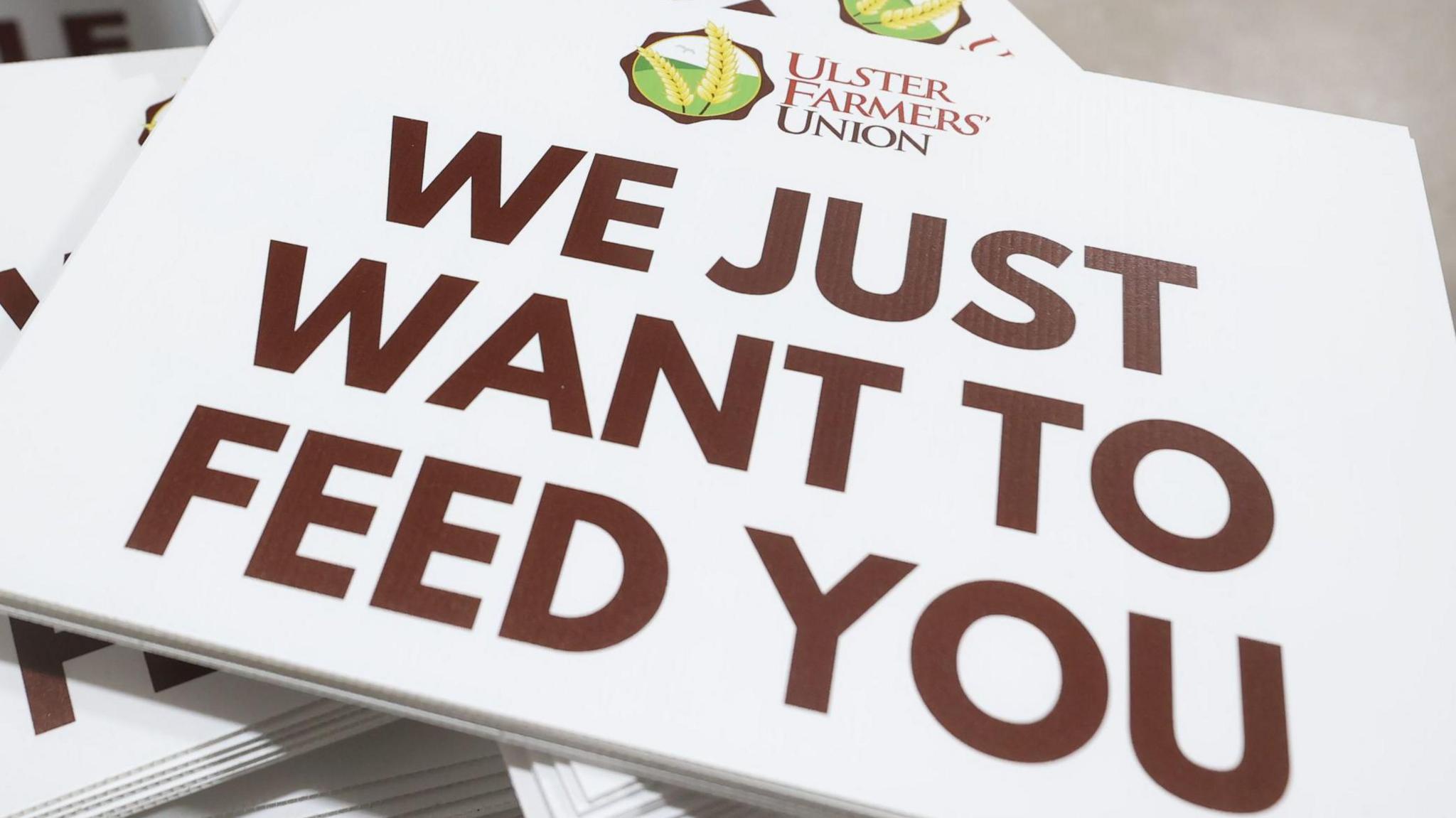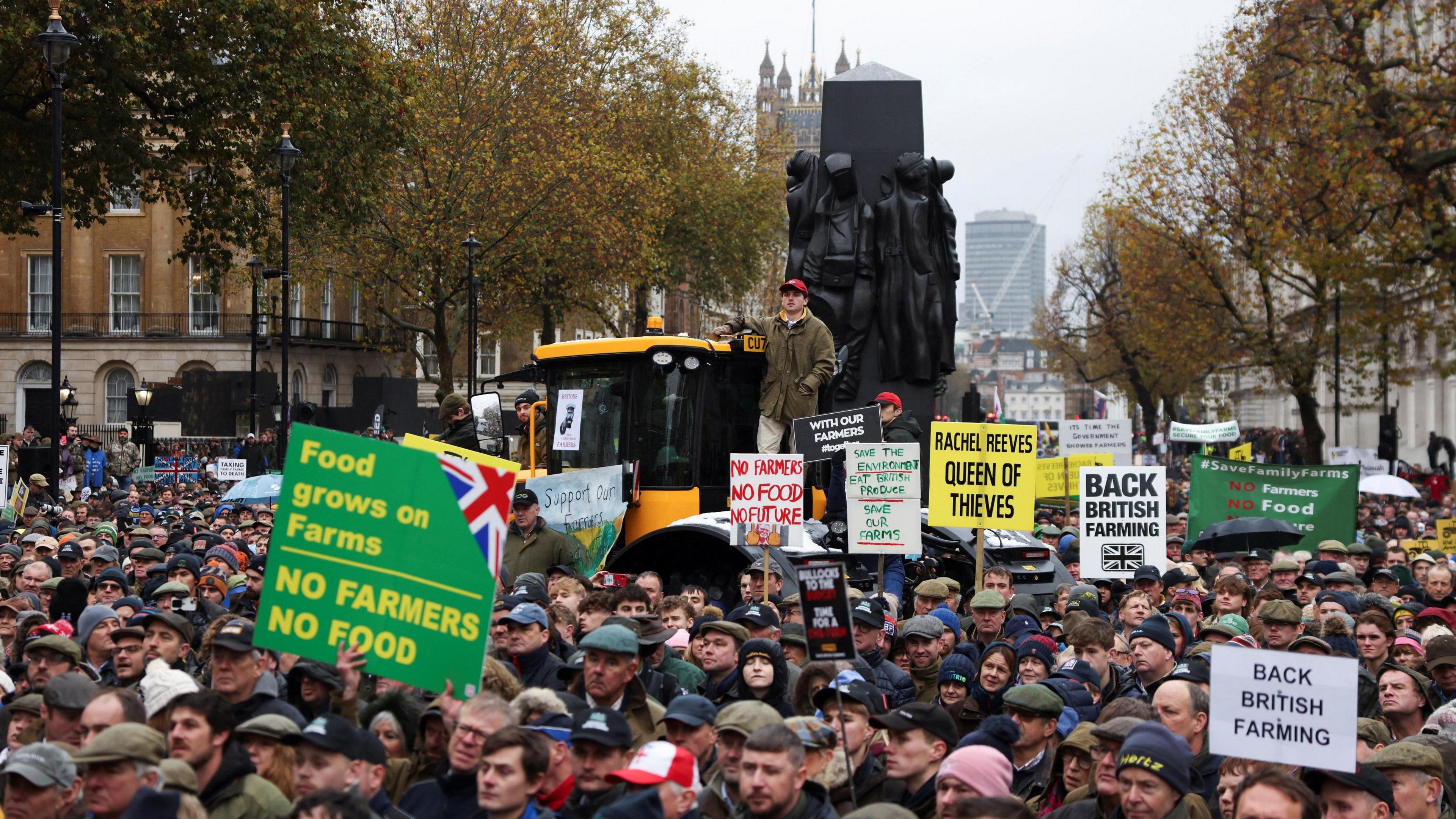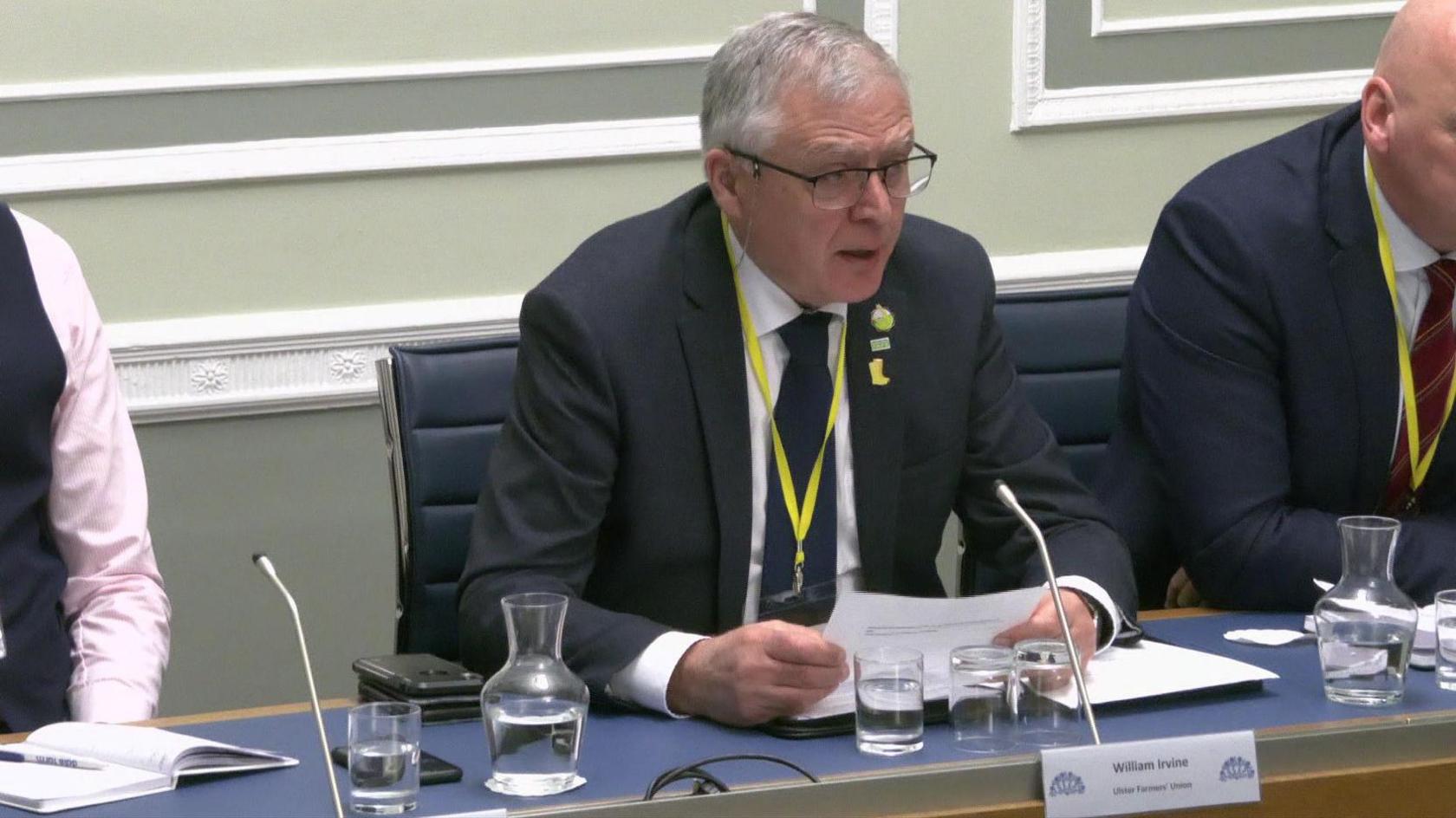Farmers' union to raise tax concerns at Westminster

Farmers from across the UK have been protesting against planned changes to inheritance tax rules
- Published
Concerns among Northern Ireland farmers about the impact of inheritance tax changes will be raised with the UK farming minister on Monday.
Representatives from the Ulster Farmers' Union (UFU) will meet Steve Reed who leads the Department of Environment, Food and Rural Affairs (Defra).
The UFU president told Stormont's Agriculture, Environment and Rural Affairs committee that he and a representative of the Valuers' Association would also give evidence to the Northern Ireland Select Committee on Tuesday.
"This problem came out of London and the answer to it lies within London and the Westminster bubble," William Irvine said.
"So that's where we're focusing our efforts at this moment.
"It's looking like it's going to be a long campaign and as we sit here, we're looking at what further actions we'll be taking through into the new year."
The announcement of a £1m cap on agricultural property relief in the October budget took the agricultural sector by surprise.
A protest rally at Balmoral Park near Lisburn attracted more than 6,000 people from all over Northern Ireland.

Thousands of farmers protested in London over changes to inheritance tax for farmers announced in the Budget
The announcement of a £1m cap on agricultural property relief in the October budget took the agricultural sector by surprise.
While the government has said most farms will pay nothing as a result of the changes, but that has been disputed by farming groups.
A protest rally at Balmoral Park near Lisburn attracted more than 6,000 people from all over Northern Ireland.
It was followed by a national rally in London and a protest lobby in Westminster.
William Irvine told the Stormont committee that the £1m threshold only covers relatively small holdings.
How many NI farms will be affected by tax changes?
- Published24 November 2024
'Unique position in Northern Ireland'
"It doesn't cover that main raft of farmers that actually fill the shelves for this country. So they could raise the threshold to a more meaningful level," he said.
"One other suggestion has been that if a farm moves down a generation and is not sold and continues to be farmed, no tax is due. It only becomes liable for tax if at some point the farm is actually sold.
"That would be a workable solution too."
Mr Irvine said the four unions around the UK were asking for "meaningful" talks to protect family farms and food security.
The UFU's parliamentary officer Alexander Kinnear told the committee he believed that the government was basing its arguments on English farming and figures for farms affected in Northern Ireland were urgently needed.
"They weren't taking into account the unique position Northern Ireland is in in terms of most likely sole ownership of land and farms but also the price per acre, which is much higher than the rest of the United Kingdom.
"So that's why the figures are urgently needed, because UK Treasury are looking at this in sort of a GB sense, they're not taking us into account," Mr Kinnear said.
In a statement, a Treasury spokesperson said the policy was based on claims data across the UK from HMRC.
The spokesman said there was a "steadfast" commitment to farmers and £5bn had been committed to the farming budget over two years.
He added: "We have been clear since this change was announced that around 500 claims of Agricultural and Business Property Relief each year will be impacted – this is based off actual claims data – and even when inheritance tax does kick in, it is effectively at half the rate paid by others.
"It is not possible to accurately infer inheritance tax liability from farm net worth figures as there are different circumstances affecting each farm, such as who owns it, the nature of ownership, how many people own it and how affairs are planned."
William Irvine said that a Treasury representative had stated in a meeting that, according to their figures, the majority of farms were owned by three people.
"In Northern Ireland, the main collateral of any farm tends to be owned by one person, so that's why we're hit so hard here."

UFU president William Irvine told the Stormont committee "it's going to be a long campaign"
The UFU's briefing to the committee also covered other current issues, including the chief veterinary officer's review of bovine TB, proposed changes to testing sheep for the disease Maedi Visna and the impact of continuing restrictions on planning due to ammonia.
It emerged Northern Ireland's Agriculture Minister Andrew Muir has written to the UFU about ammonia guidance in planning.
An excerpt from the letter was read to the committee, saying "the purpose of the next meeting is to focus on solutions which will work better for the environment and farmers in relation to ammonia emissions, specifically in respect of replacement farm buildings and responsible sustainable regulated development".
William Irvine said it was "a chink of light" but added that "nothing was a given".